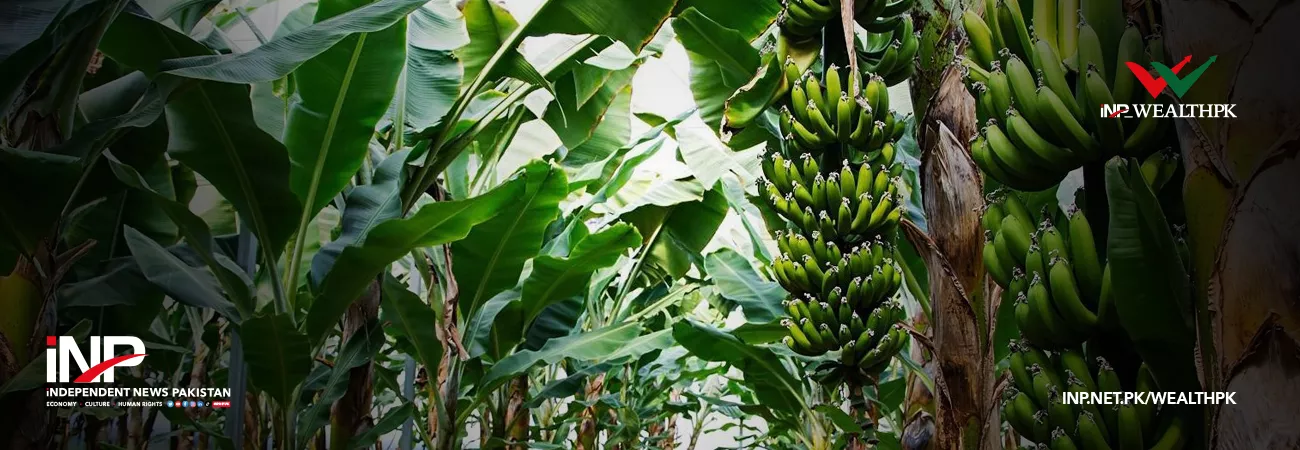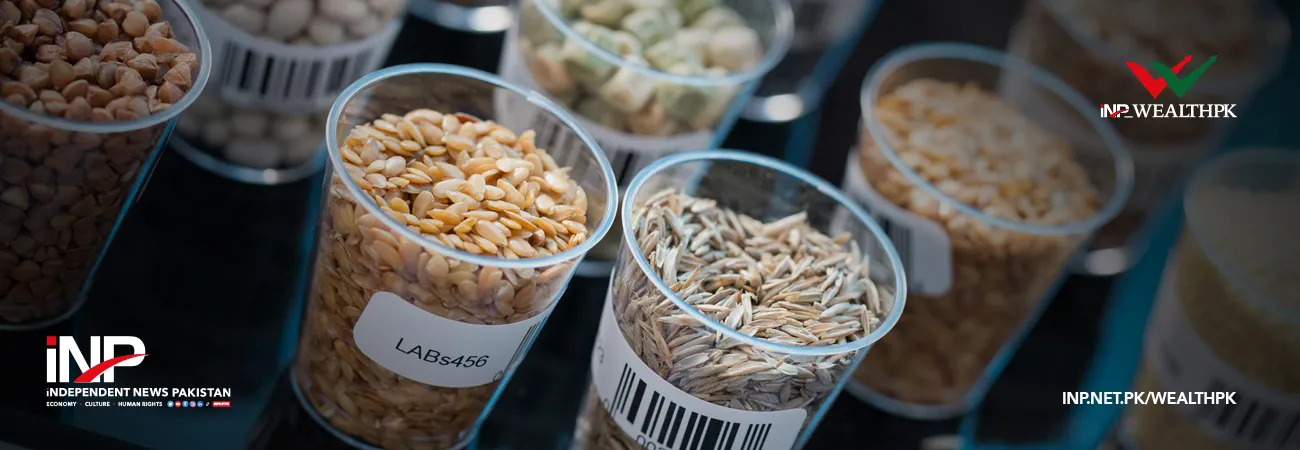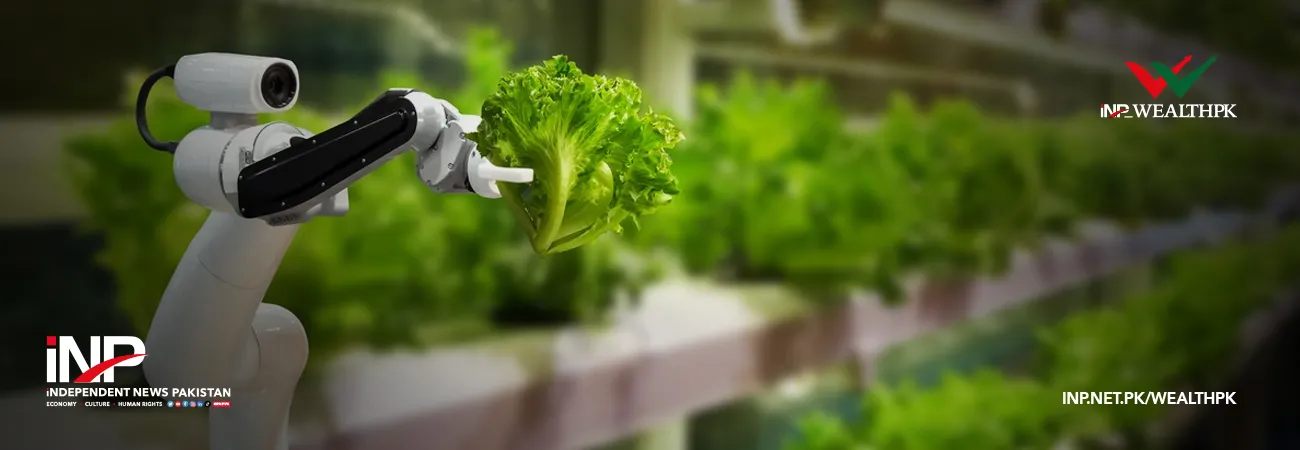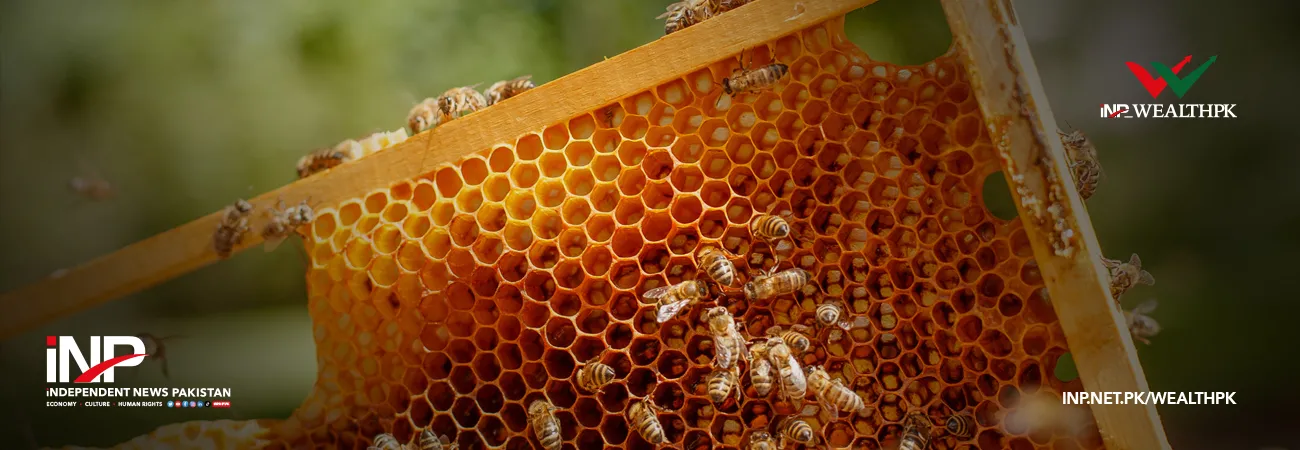INP-WealthPk
Faiza Tehseen
Disposal of tons of banana residue is a big headache for farmers. It is hard to burn due to its low calorific value. To overcome this problem, the Sindh Agricultural University (SAU), Tandojam has pioneered the production of biodegradable products like cloth, ropes, mats, canopies from banana residue and other wastes, reports WealthPK. Talking to WealthPK about the reuse of banana residue, Dr Shaukat Ibrahim Abro, Associate Professor for Soil and Environment and program leader of project ‘’to turn banana residues into biodegradable materials’’, said 90% of banana was cultivated in Sindh.
He said banana stem was used for production of biodegradable products like cloth, ropes, mats, canopies, while the remaining residues, i.e. pulp, juice, leave, peels could be further processed to prepare tissue paper, paper sheets, drinks, candies, disposable wares, egg packing trays, compost, liquid fertilizer, wax, etc. Dr Shaukat said about 10 litres of liquid fertilizer and 50kgs of wax were produced from 40kgs of pulp. Banana Crème Wax provides superior durability and UV protection and reduces sun damage to the vehicles’ finish.
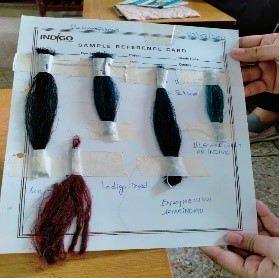
Moreover, he said the SAU will soon get the patent rights of banana residue products for commercial deals. Indigo Textile (Pvt) Limited, Karachi is coordinating the project of turning the banana fibre into a valuable floss by blending it with other natural fibres.
“The university is also providing raspador machines at an economical price with free training. Already 60 farmers, including females from different districts of Sindh, are being trained to separate banana fibre. We will sign a fibre buying agreement with them. Reuse of residues into eco-friendly products is not only sustainable, but also important for saving the environment,’’ Dr Shaukat said. Farmer Manzoor Hussain Kalhoro from Yousuf Kalhoro village in Hyderabad, cultivates bananas on 3.24 hectares.
Talking to WealthPK, he said, “it was a problem for me to handle bulks of banana residue. So, I attended a three-day session at the SAU for value addition training in banana residue. Now, I can extract banana fibre. From 35-36kgs of the stem, around 12kgs of fibre (40 to 60 inch in length) is produced. Further processing provides me with more valuables, i.e. liquid fertilizer, compost, etc. The university buys the whole lot of fibre from me regularly.”
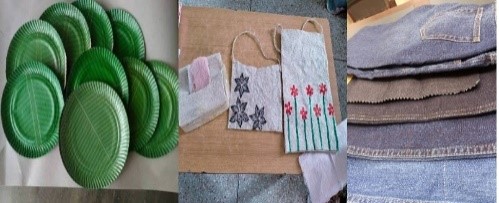
Talking to WealthPK, Dr. Nihaluddin Mari, Director (Tech 1), Directorate General Agriculture Research Tandojam and Director (S.R.I Tandojam), Sindh province said, “the Sindh University is working actively on the valuable use of banana residue. It is a good initiative to alleviate poverty and improve the economic condition of farmers. Right now, no notable assignment is carried on at the government level, but it can be started as a coordinated initiative with the public-private partnership and a university project leading team.”
Director National Institute for Genomics and Advanced Biotechnology (NIGAB) at the National Agricultural Research Centre (NARC) Dr. Aish Muhammad said valuable reuse of banana residues should be introduced for the socio-economic development of people in the banana cultivation areas.
“It will help establish new SMEs and entrepreneurships. It is a good initiative in Sindh to convert the residues into eco-friendly products. It will also help in lowering the farmers dependence on chemicals, improve sustainability and strengthen the socio-economic aspect as well.”
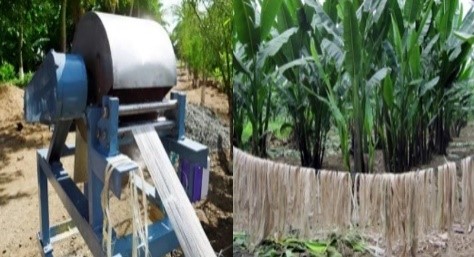
Associate professor at the National Textile University (NTU) Faisalabad Dr. Sheraz Ahmad said, “banana fibre is hard to spin but the NTU expertise has made it possible to turn it into an industrial fibre. This bio-degradable non-conventional fibre is ideal for dye and bleach. Now, the NTU has transferred this technology for three years to a well-known knitting brand. According to the policy, this technology will be transferred to the other industrial units after three years.’’
Engineer Kashif Imran from Faisalabad said banana was cultivated on a huge area in Sindh. According to an estimate, about 9,000 machines are necessary to extract the banana fibre. If the Sindh government takes the initiative to involve the poor people and farmers, it will help alleviate poverty in the province. On the other hand, the economic use of banana residues will be supportive for industry and the environment, he added.
To cut short the import bills and ensure environmental safety, enormous biomass generated from banana cultivation can be turned into valuable products. The characteristics of banana wax are similar to carnauba wax and Pakistan is one of its largest importers. Smart planning to recycle the residues into valuable ones can take Pakistan out of many economic issues.
Credit : Independent News Pakistan-WealthPk



